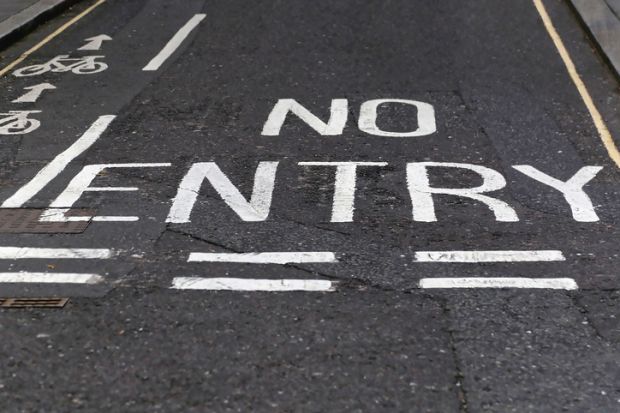Tensions are escalating on both sides of the Tasman Sea, as students bristle at the Australian and New Zealand governments’ decisions to prevent foreigners arriving from China because of the deadly coronavirus outbreak.
The New Zealand International Students’ Association (NZISA) said Chinese nationals who had already forked out “exorbitant tuition fees” now faced possible extra costs applying for new visas. NZISA questioned the right of NZ authorities to pocket some NZ$10 million (£5 million) in application fees that had already been paid.
“It highlights how international students are further being treated as cash cows and are expected to make payments despite the crisis being out of their control,” the association said, adding that universities that failed to adequately support their Chinese students could be in breach of their obligations under an international education code of practice. “If institutions are serious with their commitments to the code, they should respond to students’ needs clearly and promptly.”
Universities New Zealand chief executive Chris Whelan said the sector and government were scrambling to give students consistent and coordinated advice and support. “Being able to explain to China and incoming Chinese students just what the implications might be around things like visa settings and accommodation – we don’t yet have all of our messages lined up.”
Mr Whelan said it was impossible to predict things like the coronavirus outbreak that had precipitated the entry bans. “But coming as it does literally the week before students start turning up for the start of semester one, the timing could not be worse.”
China has admonished New Zealand for implementing the “disappointing” entry ban a day after the incoming students’ health had been guaranteed during a phone discussion between the two countries’ foreign ministers. “They have been in self-isolation and passed strict screening before boarding flights,” China’s consul general in Auckland, Ruan Ping, told Radio New Zealand.
Mr Ruan said Beijing was unlikely to retaliate, but stressed that China was New Zealand’s largest source of international students. “This travel ban makes [it] difficult [for] over 20,000 Chinese students to come back to pursue their study. It is unfair for them to have these treatments.”
Mr Whelan said there were no reports of incoming students being detained, unlike in Australia. The Australian said dozens of Chinese had been put in detention and interrogated for hours, with their belongings confiscated and valid visas cancelled, in apparent breach of protocols negotiated between immigration and education authorities.
At least one of the students claimed to have already been en route when the entry ban was announced. It follows a warning issued on the weekend by Australian Border Force commissioner Michael Outram, who said people arriving in defiance of the ban would have their visas cancelled and be put in detention.
Universities Australia chief executive Catriona Jackson said the reports were “very disturbing” and had been taken up with the government. “We expect swift action to remedy the situation. We hope to welcome these students into our communities as soon as possible.”
Ms Jackson told the ABC that the entry ban had been implemented on the advice of health authorities. “That is absolutely no reason to treat people with a lack of respect when they’ve been caught up in that time period, where they haven’t even heard the announcement when they got on the plane.”
Register to continue
Why register?
- Registration is free and only takes a moment
- Once registered, you can read 3 articles a month
- Sign up for our newsletter
Subscribe
Or subscribe for unlimited access to:
- Unlimited access to news, views, insights & reviews
- Digital editions
- Digital access to THE’s university and college rankings analysis
Already registered or a current subscriber? Login







